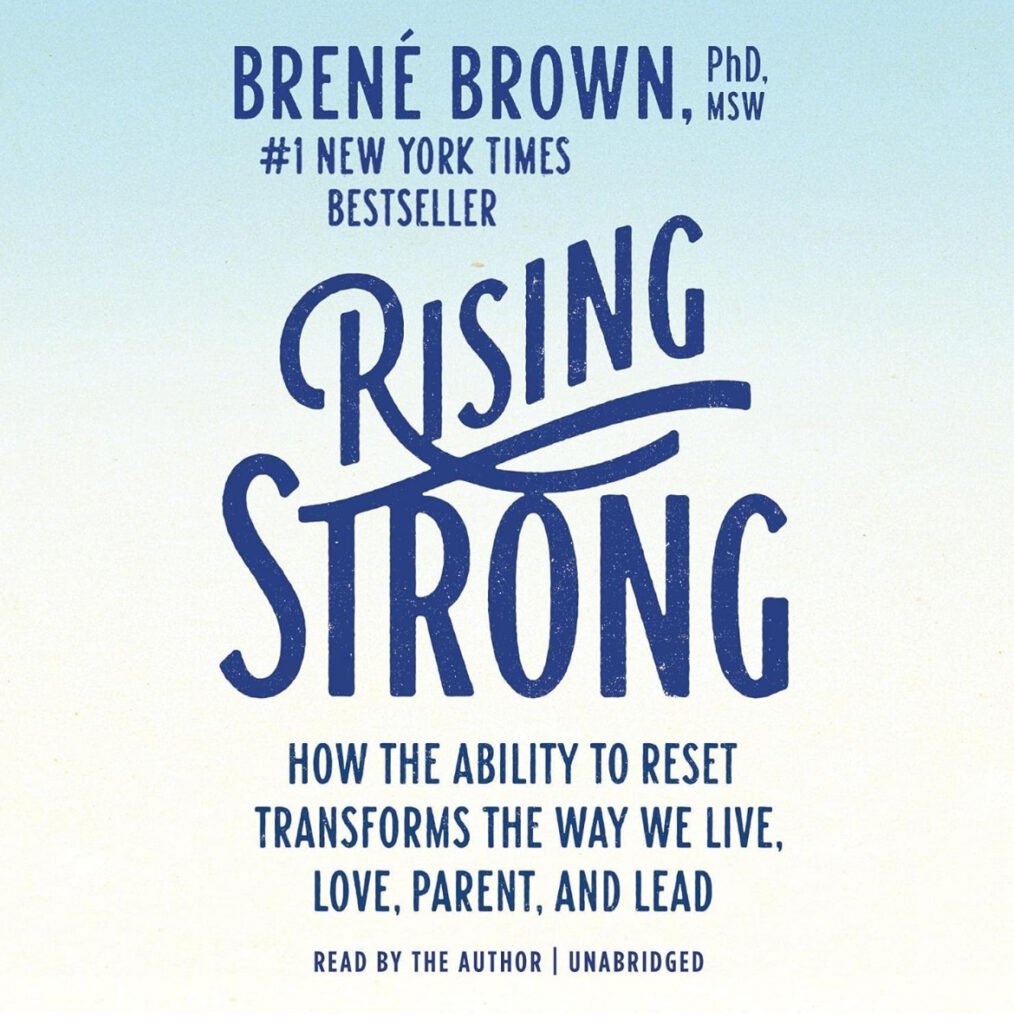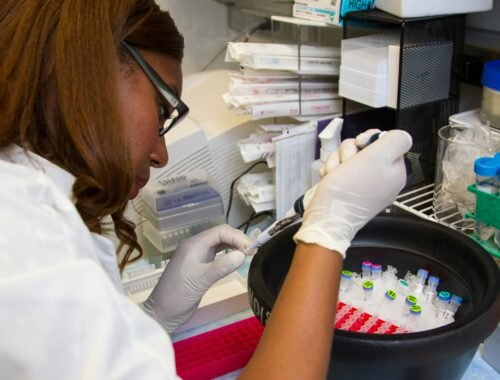
Building Resilience: Thriving After a Toxic Love Affair
Introduction: My Journey to Resilience
The path to resilience often begins in the shadow of adversity. For me, this journey commenced within the confines of a toxic love affair that, for a time, consumed every facet of my life. The relationship, once enveloped in promises of undying affection, gradually unraveled into a tapestry of emotional manipulation and mental duress. The daily strain was akin to a slow trickle of poison, eroding my sense of self and leaving me grappling with confusion and self-doubt.
Each day was a battle between my yearning for love and the stark reality of the chronic discord that had become my norm. The emotional toll was staggering, manifesting in anxiety, frustration, and a pervasive sense of isolation. Nights were often sleepless, haunted by endless loops of contentious dialogue and the fear of inevitable confrontation. My mental health took a steep dive, burdened by the ceaseless cycle of emotional highs and lows.
Eventually, the weight of the toxic dynamics became unbearable. The realization that I was slowly losing myself to a detrimental love was both a moment of clarity and profound sorrow. The decision to leave was simultaneously the most difficult and liberating choice I have ever made. It marked the beginning of my quest to rebuild a life shaken to its core by turmoil and toxicity. Emerging from the ruins required immense courage and a steadfast commitment to my well-being.
In the aftermath, I faced the colossal task of reclaiming my shattered self-esteem and sense of purpose. It was a period of intense introspection, seeking guidance, and embracing small steps toward healing. Each effort was a brick in the foundation of my newfound resilience. This personal odyssey laid the groundwork for the practical strategies I would later adopt to thrive beyond the scars of a toxic love affair.
Recognizing the Signs of a Toxic Relationship
Identifying a toxic relationship is a crucial step towards safeguarding one’s emotional well-being. Often, these unhealthy dynamics manifest through persistent patterns of detrimental behaviors. Emotional manipulation is a fundamental indicator, where one partner frequently exploits emotions to control or influence the other. This can develop into a deeply ingrained cycle of dependency and self-doubt, effectively eroding one’s sense of self-worth.
A lack of respect further exacerbates the situation, as it translates into behaviors that continually undermine a partner’s feelings, thoughts, and needs. In a toxic relationship, one might notice dismissive attitudes or actions that signify a blatant disregard for mutual respect and equality. This includes controlling behaviors, such as dictating aspects of the partner’s life or isolating them from friends and family, which serve to dominate and diminish the other person.
Constant criticism is another significant red flag. This doesn’t refer to occasional disagreements or constructive feedback but rather a relentless pattern of negative remarks that attack the person’s character or capabilities. Such criticism often leaves the victim feeling inadequate and perpetually at fault, reinforcing a harmful dynamic where they strive to meet unattainable standards set by their partner.
Other behaviors indicative of a toxic relationship can include unpredictable mood swings, jealousy, and possessiveness. These behaviors often create an environment of uncertainty and instability, where the partner may find themselves walking on eggshells. Additionally, gaslighting, a form of psychological manipulation where the abuser makes the victim doubt their reality, is a prevalent tactic used to maintain control and dominance.
Recognizing these signs is vital for understanding one’s position within a toxic relationship. Awareness is the first step in addressing and seeking help for these unhealthy patterns. It is essential for individuals in such situations to acknowledge these red flags and consider their well-being, evaluating whether it’s time to make a significant change or seek professional support.
Steps to Reclaim Your Power and Independence
Recovering from a toxic love affair is a multifaceted journey that requires intentional actions to rebuild one’s sense of self and independence. First and foremost, setting boundaries is crucial. Establishing clear limits with your ex-partner and others ensures that you create a safe space for healing. Communicate these boundaries assertively and consistently, recognizing that this is a critical step toward regaining control over your life.
Reconnecting with friends and family is another vital component of reclaiming your power. Toxic relationships often isolate individuals, distancing them from their support networks. Reaching out to trusted loved ones can provide emotional support and a sense of belonging. Surround yourself with positive influences who validate your feelings and encourage growth, as this collective support system will be instrumental in your healing process.
Prioritizing your own needs and desires is essential to fostering independence. After experiencing manipulation or neglect, rediscovering your interests and passions can be incredibly empowering. Take time to engage in activities that bring you joy and fulfillment, whether it’s pursuing a hobby, embarking on a new career path, or simply indulging in self-care practices. By investing in yourself, you rebuild your self-worth and autonomy.

Additionally, seeking professional help through therapy or counseling can accelerate your recovery journey. A mental health professional can offer tailored strategies to manage emotional scars and rebuild resilience. Therapy provides a safe environment to process the trauma and develop coping mechanisms that nurture your mental well-being.
Engaging in self-reflection and personal growth endeavors can also enhance your confidence. Journaling, meditation, or even joining support groups can facilitate introspection and empower you to heal from within. Embrace these practices to understand your experiences better and make conscious choices that align with your values.
In implementing these steps, you create a robust foundation for regaining your power and independence. As you continue to heal and grow, you will find yourself thriving beyond the shadows of a toxic relationship, empowered with resilience and self-assurance.
Enhancing Your Spiritual Life for Healing and Growth
In the aftermath of a toxic love affair, enhancing one’s spiritual life can play a critical role in the healing process. Embracing spiritual growth provides a comforting and guiding presence, empowering individuals to navigate through their emotional turmoil with a renewed sense of strength.
Engaging in regular prayer is one of the fundamental spiritual practices that can significantly contribute to this journey. Prayer offers a space for introspection, allowing individuals to express their deepest thoughts and fears to a higher power. This practice fosters a sense of connection and can alleviate feelings of isolation, reinforcing the belief that one is never truly alone in their struggles.
Reflection, another vital aspect of spiritual enhancement, encourages individuals to look inward and acknowledge their emotional landscape. Through meditation or quiet contemplation, individuals can analyze past experiences, identify patterns, and gain valuable insights into their emotional responses. Reflection aids in understanding oneself better, paving the way for personal growth and resilience.
Connecting with a higher power, be it through religious observance or spiritual practices like mindfulness, can provide an anchoring effect. For many, this higher power represents a source of unconditional love and guidance, offering solace during challenging times. Participation in communal worship or spiritual groups can also contribute to a sense of belonging, offering supportive networks that foster emotional and spiritual healing.
Incorporating these practices into daily life can effectively enhance one’s spiritual well-being. By nurturing a deeper connection with one’s spirituality, individuals can draw upon an inner reservoir of strength and wisdom. This fortified spiritual foundation not only aids in recovering from the detrimental impacts of a toxic relationship but also promotes ongoing personal growth and resilience, enabling one to thrive in the face of future adversities.
Meditation Practices for Emotional Healing

Recovering from a toxic love affair can significantly impact one’s emotional well-being. Meditation stands as a vital tool in this journey, aiding in the healing process by fostering a sense of inner peace and emotional resilience. Among the various types of meditation practices, mindfulness meditation, guided imagery, and loving-kindness meditation are particularly beneficial.
Mindfulness meditation helps in grounding oneself to the present moment. This technique involves sitting comfortably and focusing on your breath, observing each inhalation and exhalation without judgment. When thoughts arise, gently acknowledge them and bring your focus back to your breathing. This practice cultivates a heightened awareness of the present moment, which can aid in reducing anxiety and emotional distress stemming from past experiences.
Guided imagery is another powerful meditation practice for emotional recovery. It involves using the imagination to generate mental images that induce a state of relaxation and emotional well-being. Begin by getting comfortable in a seated or lying position. Close your eyes and visualize a serene location, such as a peaceful beach or a quiet forest. Engage all your senses to make the scene vivid—imagine the sound of waves crashing or the scent of pine trees. This exercise helps in escaping the clutches of negative thoughts, offering a mental refuge that promotes healing.
Lastly, loving-kindness meditation focuses on cultivating compassion towards oneself and others. Start in a comfortable position and close your eyes. Silently repeat phrases like “May I be happy, may I be healthy, may I be safe.” Gradually extend these wishes to others, starting from loved ones to neutral individuals and even those with whom you have difficulties. This practice can dissolve feelings of resentment and foster emotional resilience by nurturing a sense of universal love and interconnectedness.
Integrating these meditation techniques into your daily routine can markedly improve mental health and emotional stability. Each practice offers unique benefits, collectively helping to build resilience and thrive after a toxic love affair. Through consistent practice, the tools of mindfulness, visualization, and compassion can pave the way for enduring emotional healing.
The Role of Therapy in Recovery
Seeking professional help through therapy can be a pivotal aspect of the recovery process after a toxic love affair. Various forms of therapy offer distinct approaches and benefits that can assist individuals in rebuilding their emotional and psychological well-being. Cognitive-behavioral therapy (CBT), for instance, focuses on changing negative thought patterns that contribute to emotional anguish. By identifying and restructuring these thoughts, individuals can develop healthier coping mechanisms, which are essential for moving forward.

Trauma-focused therapy, on the other hand, specifically addresses the traumatic experiences associated with a toxic relationship. Through this form of therapy, individuals can work through their trauma, gaining a better understanding of their emotional responses and developing tools to manage distress. This specialized approach not only aids in healing past wounds but also empowers individuals to build resilience against potential future emotional harm.
Group therapy provides a different yet equally valuable perspective. By participating in group sessions, individuals can share their experiences with others who have faced similar challenges. This communal environment fosters a sense of solidarity and belonging, which can be incredibly therapeutic. Hearing others’ stories and offering mutual support can lead to significant emotional relief, validation, and practical advice.
The real-life benefits of therapy can manifest in various ways, from improved mental health and self-esteem to the development of healthier relational patterns. However, therapy is not without its challenges. It requires commitment, vulnerability, and the willingness to confront painful emotions. Some may find it difficult to trust a therapist or to open up in a group setting. Nonetheless, the long-term benefits of therapy often far outweigh these initial hurdles, making it a worthwhile investment in one’s well-being.
Recovery from a toxic love affair is a journey that often requires guidance and empowerment, and literature can provide that much-needed support. One highly recommended book is ‘Power Moves’ by Sarah Jakes. This book is a compelling mix of personal anecdotes and practical advice, offering readers tools to reclaim their power and rebuild their lives. Jakes emphasizes the importance of self-worth and resilience, encouraging individuals to make strategic moves in their life, career, and relationships, which are essential for overcoming the emotional fallout of a toxic relationship.

Another invaluable read is ‘The Power of Now’ by Eckhart Tolle. This book delves into the importance of living in the present moment and shedding the psychological burden of past traumas. Tolle’s teachings focus on mindfulness and spiritual awakening, making it easier to break free from the cycle of negative thoughts and emotions that often follow a toxic relationship. By fostering a deeper connection with the present, readers can find peace and strength within themselves.
Additionally, ‘Rising Strong’ by Brené Brown is an excellent resource for anyone looking to rise from adversity. Brown’s research on vulnerability and resilience offers profound insights into how we can embrace our imperfections and turn our struggles into a source of strength. This book provides practical guidance on how individuals can process their emotions and find meaning in their experiences.

For those seeking a structured approach to personal growth, ‘Atomic Habits’ by James Clear is highly recommended. Clear’s focus on small, incremental changes can be particularly beneficial when trying to rebuild oneself after a toxic relationship. His strategies for habit formation can aid in developing healthier behaviors and mindsets.
These books, along with others in the self-improvement genre, offer essential tools and perspectives for those on the road to recovery. They emphasize the themes of self-worth, resilience, and personal growth, which are crucial for thriving after a toxic love affair.
Journaling
Rediscovering Yourself: The Power of Journaling and Affirmations After a Toxic Affair
Healing from a toxic affair is a journey of self-discovery and renewal. As you navigate the complexities of emotional recovery, journaling emerges as a valuable companion. By pouring your thoughts and feelings onto paper, you create a safe space for emotional release and self-reflection. Over time, patterns, triggers, and hidden beliefs may surface, offering profound insights into your experiences.
Journaling also serves as a catalyst for personal growth. Setting goals, tracking progress, and reflecting on your journey can empower you to build a stronger, more resilient self. The simple act of writing can be incredibly therapeutic, reducing stress and promoting emotional well-being.
In addition to journaling, incorporating daily affirmations into your routine can significantly impact your healing process. Affirmations are positive statements that challenge negative thought patterns and reinforce self-belief. By affirming your strength, resilience, and worth, you can gradually rebuild your confidence and self-esteem.

For example, you might choose affirmations like: “I am worthy of love and happiness,” “I am strong and capable of overcoming challenges,” or “I am releasing the past and embracing a brighter future.”
Remember, consistency is key. By combining the power of journaling and affirmations, you’re taking proactive steps towards healing and creating a fulfilling life.
Conclusion: Embracing a Bright Future
Building resilience after enduring a toxic love affair is crucial for personal growth and emotional recovery. It is essential to recognize that overcoming such turmoil is not merely about moving on from an unhealthy relationship but about nurturing a foundation for a brighter, more fulfilling future. Through the course of this article, we’ve explored the critical stages of this transformative journey: recognizing the toxic patterns, taking the necessary steps to distance oneself, focusing on self-care, and rebuilding self-worth.
Resilience plays a pivotal role in this healing process. By fostering resilience, individuals empower themselves to handle adversity, learn from difficult experiences, and ultimately emerge stronger. It is through resilience that one can navigate the complex emotions and challenges that follow a toxic relationship, making it possible to rebuild one’s life with compassion and confidence.
Self-love and self-acceptance are equally vital in this journey. They form the cornerstone of recovery, enabling individuals to treat themselves with the kindness and respect they deserve. Prioritizing self-care, whether through therapy, hobbies, or new social connections, can act as the catalyst for rediscovering one’s true self and potentials that may have been overshadowed by the toxic relationship.
Continuous growth is another important aspect. Life after a toxic love affair should be viewed as a journey of ongoing development, both personally and relationally. By remaining committed to personal improvement and embracing new opportunities for learning and connection, one can create a life that is not only free from past toxicity but filled with greater joy and meaning.
Remember, the end of a toxic relationship is not the end of the love story but the beginning of a new chapter—one where resilience, self-love, and continuous growth pave the way for a brighter future. Equipped with these tools and insights, you are more than capable of thriving and creating a life filled with the happiness and fulfillment you truly deserve.
Vivica Fishburne
Vivica Fisburne, also known as Coach Vivica B, is a dynamic Success and Confidence Coach, Brand. Consultant,Author, Speaker, and Serial-Preneur. With a passion for empowering others, Vivica has dedicated her career to helping individuals unlock their full potential and achieve their goals. A graduate of Coaches Alliance, Vivica brings a wealth of knowledge and experience to her work. As a mother of five, she understands the challenges and rewards of balancing a busy life while pursuing personal and professional aspirations. Additionally, her journey as a breast cancer survivor and advocate has instilled in her a deep appreciation for resilience and the power of the human spirit. When she's not inspiring others, Vivica enjoys pursuing her own passions and spending time with family and friends. She’s a dedicated reader, hiker, and fitness enthusiast. She also loves to express herself through music, playing guitar and singing, and sharing her thoughts through her blog.
You May Also Like

Closing the Gap: Breast Health and Mammography for Black Women
August 8, 2024
Black Women Blog Too: Black Women Who Are Unapologetically Showing Up
October 1, 2024

